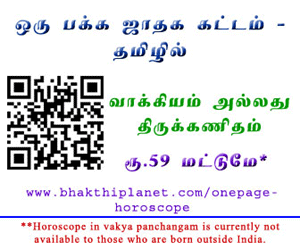VAASTHU A SCIENCE OF ARCHITECTURE – Part 4
VijaykrisshnaRau
We have to follow certain guidelines for our own protection. To achieve that, we have to ensure that we make use of the elements of nature. We have to learn about the basic principles of the earth in which we live. Even if the basis of our living is science, the spiritual element should not be ignored.
The earth is the repository of many secrets and mysteries. It can do anything to us at any time. What will happen, will happen, is an old adage. Still we can help influence the course of events to a limited extent through spirituality, through a strong belief in the Divine Force.
The Force is behind all happenings. The Force is the reason for peace, and also for war. Yet, to make use of auspicious time, to blend human energy with the power of nature, to progress, to prosper, to earn name and fame, and to safeguard our wealth to the extent possible, our ancients have bequeathed us the astrological sciences.
There are various branches of astrological sciences. In this book we will take up just one aspect, the science of architecture: Vaasthu Shaastra.
Planets and humans
A person’s destiny is determined at the time of his or her birth by the position of the planets. This is the basis of all astrological sciences. Still, the Divine has given us humans alone certain powers to influence our destiny: the power of speech, the power of thought and the power to translate thought into action. The Force, which created humanity, has also given it an incalculable amount of energy to propel its progress. Saints, and sages, intellectuals and scientists are the visible examples of the Divine at its best.
To minimize, if not, to ward off difficulties, to get over tight situations, and to make use of auspicious time, our great rishis (sages) have given us the science of architecture or Vaasthu Shaastra.
Saturn (Sani) cannot be pushed from the eighth (ashtama) to the ninth position even if a million hands try to move him. He will on his own move from the eighth to the ninth when the time comes, but until that happens the afflicted person will undergo umpteen difficulties. However, if, as a remedial measure, we make our house a congenial, Vaasthu-friendly dwelling, the planets also will be propitious to us.
Vaasthu and other shaastras
Some say that manayadi shaastra (treatises in Tamil on land/buildings) and Vaasthu Shaastra are one and the same, while others maintain that the two are different. The proponents of the first school feel that to build a temple or a house it is sufficient if, as in the case of marriage, we select the right time, the auspicious day and make sure that the selected time and day matches with the owner’s horoscope. Study the nature of the soil; decide on the built-in-area, find out whether if it were of certain dimensions, what the benefits or drawbacks are, and so on and so forth. Such details can easily be found in the many books on building science.
The supporters of Vaasthu, on the other hand, feel that many of the rules and regulations set forth in manayadi shaastra are unnecessary, or are useful only for building temples. From a practical point of view, they claim, only Vaasthu can determine the layout of the building, the placement of the doors at the appropriate corners, the elevation and the descent, etc., etc. This, they claim, is what sets Vaasthu apart.
Instead of going into the merits of each of these schools and trying to find their relative superiority, it would be better to judge their utility from a practical point of view, since the aim of both is to improve the quality of our life.
In the truest sense, both manayadi shaastra and Vaasthu are one and the same, as their opinions largely coincide. The purpose is also the same. The views and outcome explained in Vaasthu shaastra can be found in a lyrical form in many an ancient Tamil text on manayadi shaastra.
Indeed, it can be safely said that Vaasthu is the Sanskrit counterpart of manayadi shaastra.
Changing times
Those who have read the ancient texts on both Vaasthu and manayadi shaastra sometimes feel that their prescriptions apply only to palaces and temples. The reason for this conclusion is clear: these treatises were written during ancient times, when temples and palaces abounded. Some of the texts on manayadi shaastra are in palm leaf manuscripts, proving the fact that this treatise is of ancient origin.
Indeed, manayadi shaastra has many secrets yet to be unveiled. Whether we have the patience to study them is a moot point, but we certainly need Divine guidance to know their true meaning. That surely is the right approach. One of the greatest exponents of manayadi shaastra, indeed its guru, was Mayan, the father of Mandodhari, Ravana’s wife. Even he, it is said, could not interpret the secrets of the shaastra to perfection that he went on to build a ruinous castle in Lanka, the consequence of which was the annihilation of almost the entire clan, as described in the great epic, Ramayana.
The mysteries of nature are so vast that they mystify even those who deny the existence of God. Only a true lover of nature can realize the power and existence of the Divine. You can feel God in the cool breeze, the drops of rain, the life-giving rivers, the fruit-bearing trees, in the kingdom of flowers, in the rain forests, and in fire. Rightly, therefore, you will discover that water, fire, air, sky and earth, the Panchabhoothas, the five elements, are the main pillars of manayadi shaastra and Vaasthu. Wealth, it is said, goes to those who employ these five elements properly.
(Continue)
 © 2011 bhakthiplanet.com All Rights Reserved
© 2011 bhakthiplanet.com All Rights Reserved















